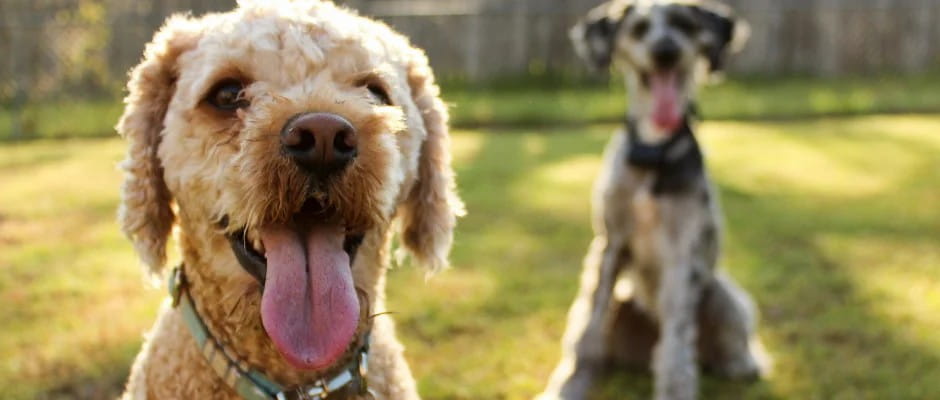
As summer approaches, outdoor activities and adventures can be some of the best ways to bond with your four-legged friends. However, there are factors to consider especially if you live in a hot climate to ensure your pet stays safe from extreme heat.
As the gardening season approaches, be aware of the pesticides and fertilizers used at home, or those that your pet comes in contact with. Many ingredients used in these gardening treatments can be toxic if ingested. By keeping pets off of freshly-treated grass and out of gardens, you can prevent the risk altogether. If you have fertilizer or other landscaping treatments, store them out of reach from your pets. If you do suspect your pet ingested toxic materials of any kind, do not hesitate to contact your veterinarian, or contact the ASPCA Poison Control Center.
Sunscreen and bug spray can be effective for humans, however, never apply these sprays on animals. Because of your pet’s tendencies to use their sense of taste to explore different substances, you could be putting them at risk of ingesting toxic ingredients.
Providing water is a must when taking your pets on an outdoor adventure. Just as you stay hydrated while spending time outside, it is just as important for your pet. A portable water bottle or water dish is a perfect solution for on-the-go hydration.
Be mindful of the weather when planning an outdoor adventure for you and your pet. Extreme temperatures can cause your pet to overheat. During the hot summer months, consider taking your pet for long walks or hikes during the cooler hours of the day.
When pets overheat, they will pant excessively, begin to drool, have reddened gums, or even collapse. Knowing these symptoms is important if your pet is experiencing heatstroke, in which you should move your pet to a cool place and provide them with water. Animals with flat faces are much more susceptible to overheating, because of their short snouts. They are unable to pant as effectively as other breeds, making them at high risk for heatstroke.
Finally, be aware of hot pavement, as animals an be at risk of burning their paws. Even though the air temperature may not be dangerously hot, it is possible that asphalt or concrete will be scalding if exposed to sunlight for long periods of time. Be aware of the surfaces your dog is walking on, a safer alternative being grass or soil.